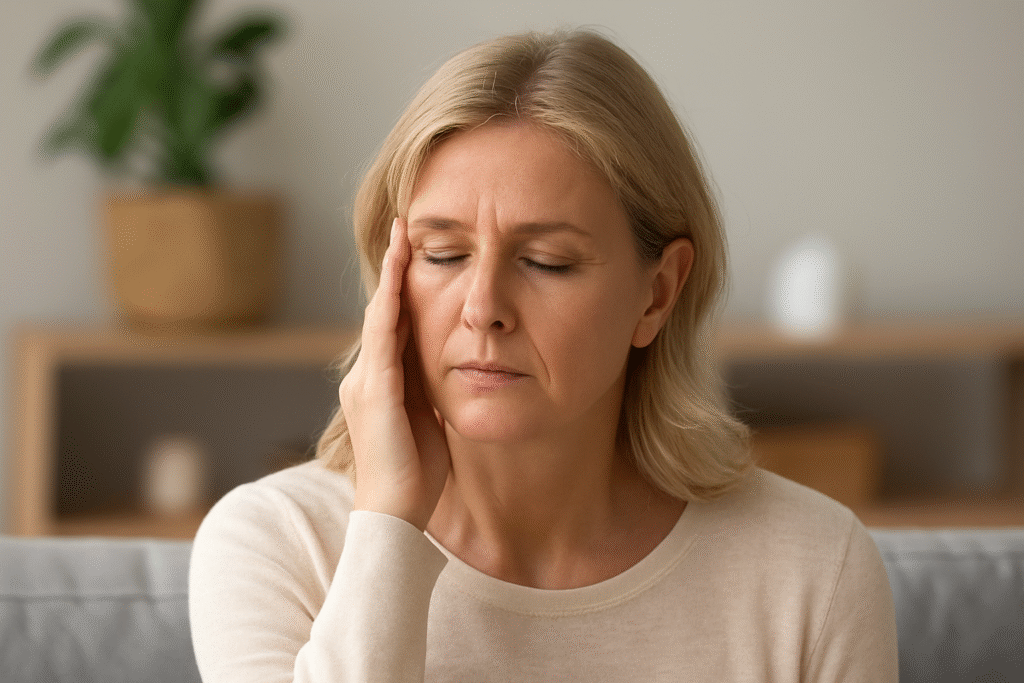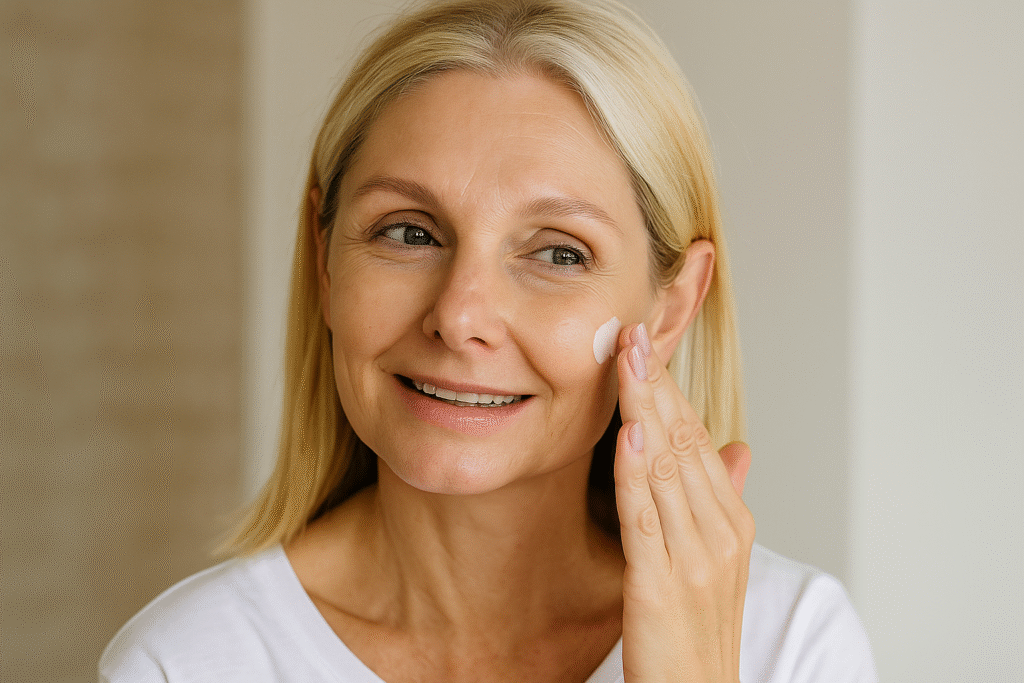A Gentle Introduction: You’re Not Alone in This Journey

If you’ve started noticing changes in your body—like irregular periods, unexpected hot flashes, or trouble sleeping—you might be wondering if something bigger is going on. For many women in their late 30s, 40s, or early 50s, these changes can signal the start of perimenopause or even early menopause.
This is not a “problem” to be fixed—it’s a natural phase of life that every woman goes through in her own time. The key is understanding what’s happening, so you can care for your body (and mind) in ways that help you feel good every day.
What Exactly Is Early Menopause?
Early menopause refers to when menopause (the end of menstrual cycles) happens before the age of 45. In many cases, it starts as perimenopause—a transition phase that can last several years before your periods stop completely.
Menopause is officially confirmed when you haven’t had a period for 12 months straight. But in the years leading up to it, hormonal shifts—especially a drop in estrogen—can trigger a variety of symptoms.
📌 According to the Mayo Clinic, the average age of menopause is 51, but symptoms can begin in your 40s or even late 30s for some women. (Mayo Clinic – Menopause Basics)
Common Early Menopause Symptoms
1. Irregular Periods
Cycles may become shorter, longer, lighter, or heavier. You might also skip months and then have your period return unexpectedly.
2. Hot Flashes & Night Sweats
Sudden waves of heat, often followed by sweating, can happen during the day or disrupt your sleep at night.
3. Sleep Disturbances
Falling asleep or staying asleep may become more difficult, even without hot flashes.
4. Mood Changes
Some women notice increased irritability, anxiety, or feelings of sadness. Hormonal fluctuations can play a role, but so can the stress of life changes.
5. Brain Fog & Forgetfulness
You may have trouble focusing or remembering details as clearly as before.
6. Skin & Hair Changes
Lower estrogen can lead to drier skin, thinning hair, or changes in texture.
7. Vaginal Dryness & Discomfort
This can make intimacy uncomfortable and may also affect urinary health.
Why These Changes Happen
The main cause is the gradual decline of estrogen and progesterone. These hormones affect not just your reproductive system, but also your brain, bones, skin, and heart health.
During perimenopause, hormone levels don’t just “drop”—they fluctuate, which is why symptoms can feel unpredictable.
Natural Ways to Feel Good During This Transition
The goal isn’t to erase symptoms completely (though that might happen for some women), but to support your body so you can feel balanced, energized, and comfortable.
1. Eat to Support Hormonal Health
- Phytoestrogen-rich foods like flaxseeds, edamame, and chickpeas can gently mimic estrogen in the body.
- Prioritize whole foods—vegetables, fruits, lean proteins, and healthy fats.
- Limit processed sugar, which can spike inflammation and worsen symptoms.
(Source: North American Menopause Society – Dietary Support During Menopause)
2. Stay Active (But Gentle on Your Joints)
- Mix strength training (for bone health) with low-impact cardio like swimming or cycling.
- Include yoga or Pilates for flexibility, posture, and stress relief.
3. Prioritize Sleep Hygiene
- Keep a regular sleep schedule.
- Avoid caffeine late in the day.
- Create a bedtime ritual (reading, gentle stretches, herbal tea).
4. Manage Stress Proactively
- Practice deep breathing, meditation, or journaling.
- Spend time outdoors—nature can be surprisingly grounding.
5. Consider Herbal & Natural Supports
- Black cohosh may help reduce hot flashes (consult your healthcare provider before starting).
- Red clover and evening primrose oil are popular natural options for symptom relief.
(Source: National Center for Complementary and Integrative Health – Herbs and Supplements for Menopause)
6. Nurture Emotional Wellbeing
- Talk openly with friends, your partner, or a support group.
- Remember: your worth and beauty are not defined by age or hormones.
When to See a Doctor
While early menopause is natural for some women, certain symptoms may require medical attention:
- Severe hot flashes disrupting daily life
- Significant mood changes
- Rapid bone loss or fractures
- Very heavy bleeding
Always check with your healthcare provider if you’re unsure—especially if symptoms appear suddenly or before age 40.
Embracing This Season of Life
Your 40s and 50s can be a time of incredible growth, confidence, and self-discovery. Early menopause doesn’t have to feel like the “end” of something—it can be the beginning of a new chapter where you know your body better than ever and care for it with intention.
Continue exploring with these recommended reads :
- Why a Calm Evening Routine Matters After 30 (better sleep & stress relief).
- Benefits of Moringa for Women Over 30 (nutritional support).
Your Turn—Let’s Talk
💬 Have you noticed any of these early menopause symptoms? What’s helped you feel good during this transition? Share your experience in the comments below—you never know who might need to hear your story.



